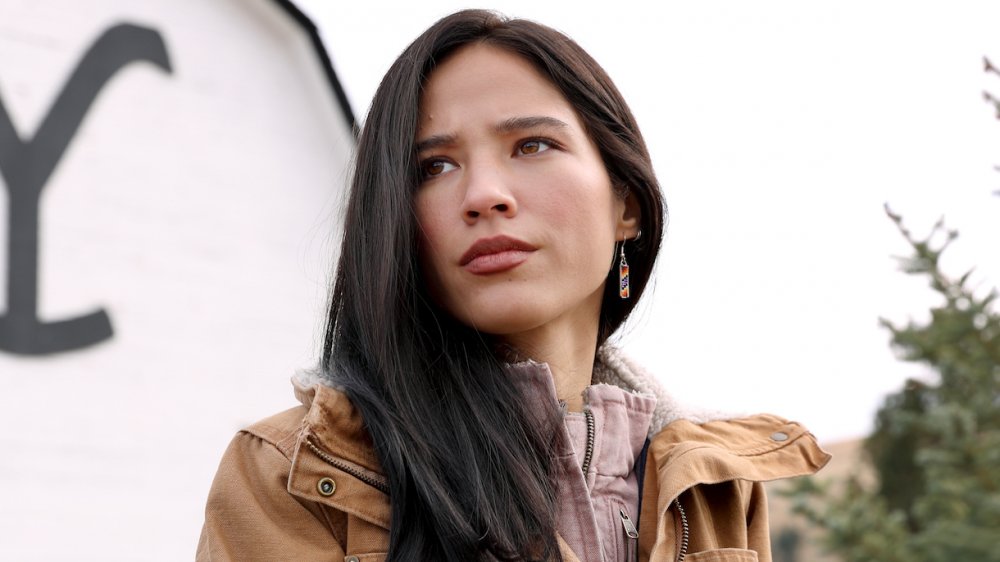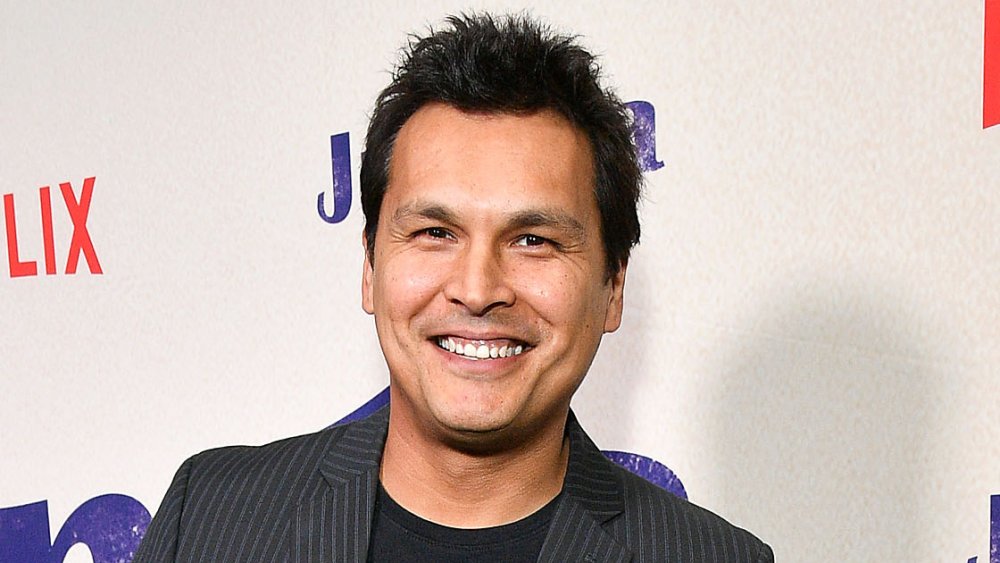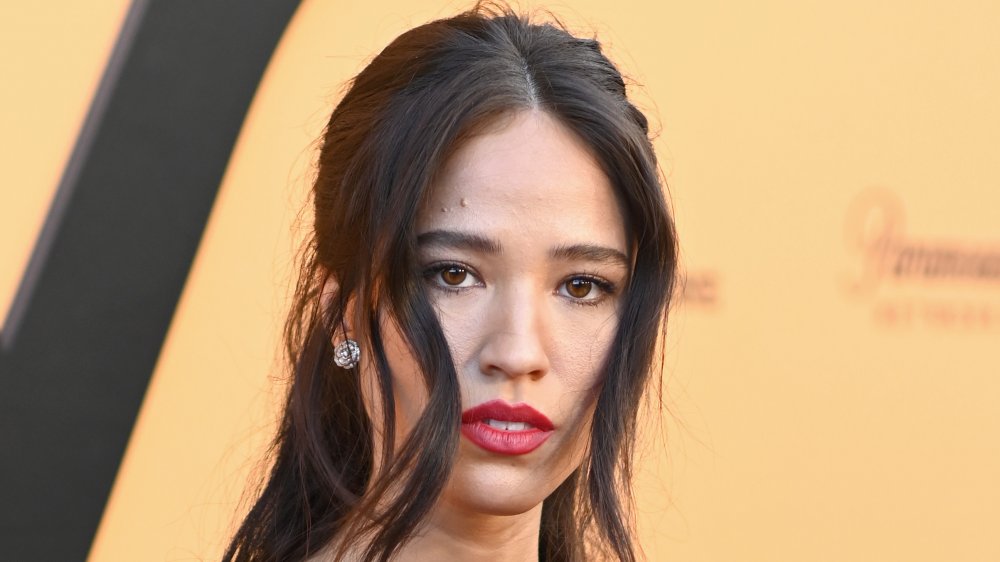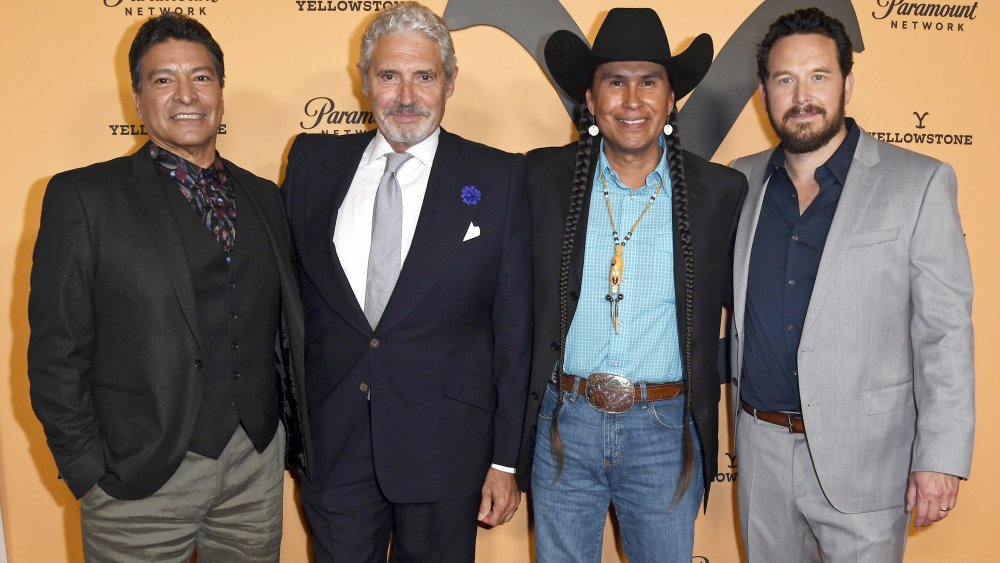The Truth About Yellowstone's Casting Controversy
Romance, political intrigue, nefarious criminality, and family drama is all set across the backdrop of the stunning American west in Paramount Network's hit original series Yellowstone. The show focuses on the Dutton family, who are the owners of the largest private ranch in the country. When they aren't fighting with one another, they are attempting to protect their large land holdings from the various forces who conspire against them to carve away parts of the Yellowstone Dutton Ranch.
To complicate matters, one of the groups working against the Duttons are the fictional Broken Rock tribe of Native Americans, whose reservation abuts the Dutton ranch. The Dutton's conflict with their native neighbors provides an excellent contrast to their battles with developers looking to dismantle the land to sell to wealthy vacationers. The Duttons have owned their ranch for generations, but the Broken Rock tribe have been on the land for even longer, making it difficult for the family to refute their claims.
The strong Native American presence on Yellowstone has led to a large number of roles for native actors, something that is unfortunately rare in TV and film today. However, a controversy that erupted over the casting of one of the native parts showed that simply having Native American characters doesn't necessarily mean a show is handling their inclusion well.
When did the Yellowstone casting controversy begin?
Before the first season of Yellowstone began airing, Native American actor Adam Beach, best known for his roles in Windtalkers, Flags of Our Fathers and Suicide Squad, took to Instagram to criticize a particular casting decision. Over a picture of actress Kelsey Asbille he posted the words, "Failure of diversity. I'm asking my Native actors to stay away from this project."
Asbille plays the role of Monica Dutton, the Native American wife of one of the Dutton men. She also previously played a Native American character in Yellowstone creator Taylor Sheridan's film Wind River. In a W Magazine profile, Asbille identified her heritage as part European, part Chinese, and part Cherokee.
Despite the fact that Asbille identifies as part Native American, Beach was unconvinced that she was the correct person to cast in the role. In his Instagram post he went on to say, "Yellowstone is telling the world that there are no Native actresses capable of leading a TV show. Unless your great-great-great grandparents are Cherokee."
Is Kelsey Asbille really part Native American?
Beach followed up his Instagram post with an op-ed for Deadline explaining his views on casting for Native American roles. "Being Native is more than claiming your great-great-grandmother was a Cherokee princess...It's more than a last-minute bullet point on your resume or Wikipedia page to qualify you for a role you wouldn't otherwise receive. Incidentally, claiming Native ancestry without proof makes one a fraud."
He went on to speak on the hardships faced by Native Americans since European colonization, which persist to this day, and said of Native identity, "Only a Native knows what it is to be Native, because they have the life experience to show it, in all its nuanced complexities."
When Asbille was cast in Wind River, a New York Times story identified her as having Eastern Band Cherokee heritage, but clarified that she "did not grow up in an indigenous community." An enrollment specialist for the Eastern Band Cherokee was asked about Asbille's claims, and as reported by Pechanga.net, responded by saying, "Kelsey Asbille (Chow) is not now nor has she ever been an enrolled member of the Eastern Band of Cherokee Indians. No documentation was found in our records to support any claim that she descends from the Eastern Band of Cherokee Indians."
What Native American industry professionals think of the Yellowstone casting controversy
Of course, Beach is just one person. Buzzfeed published an article about the controversy which included interviews with other Native American actors and industry professionals who spoke to a diversity of opinions within the native community on people who possibly have Native American ancestry — but who did not grow up in a native community — playing native roles.
Joely Proudfit, Ph.D, who helps run a group that consults on Native American representation in media called The Native Networkers, said of the controversy, "I don't want to minimize this to one individual... That's the crumbs on the floor, not the cake on the table."
Actor and Chair of the SAG-AFTRA National Native Americans Committee DeLanna Studi pointed out that a huge part of the issue is the fact that Native American actors rarely get opportunities outside of the small number of native roles available at any given time. "If it was more of a level playing field — where our Native actors were being cast as leads in How to Get Away With Murder or Grey's Anatomy, where they can just be a human being — then there wouldn't be this need for us to be protective of the roles that are just for us."
Studi went on to say of Yellowstone's particular controversy, "I see moments like this as opportunities for us to have these conversations and to present to the industry the different resources that are available to them... Did they mess up? They did. Can they fix it? Yes, they can. And we have to be willing to help them fix it."



